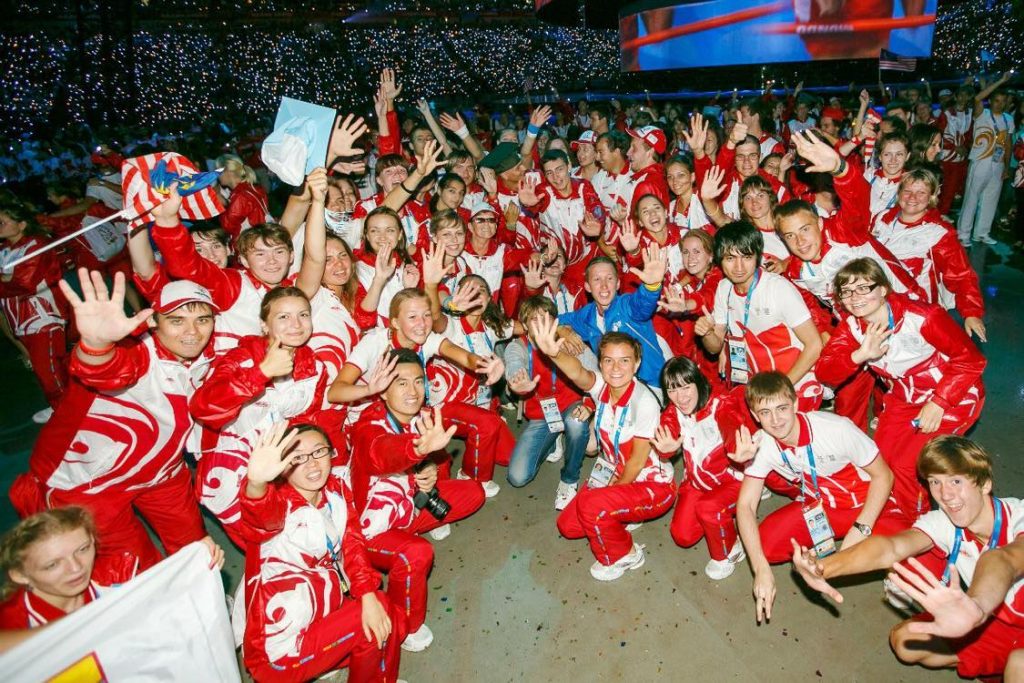Part IV
AUTHOR: Tatiana Nikulina, Expert in Sports Volunteering Operational Management at NR SVS
In the vast landscape of global sports events, a silent yet powerful force is often the volunteers. Especially in countries with an underdeveloped volunteer culture, their role becomes ever more crucial. Their dedication and commitment often determine the success of the event. However, the significance of proper training and support for these volunteers cannot be overstated.
This article is the 4th part of the review of the experience of managing a volunteer program for a major sporting event in a country with a low volunteer culture, detailed in the authors’ MEMOS thesis. The thesis includes critical observations and findings from the volunteer programs for the Kazan 2013 World Summer Universiade (Russia) and Tbilisi 2015 European Youth Olympic Festival (Georgia).
In countries where volunteerism is not a deeply embedded practice, individuals might be engaging in such roles for the first time. Herein lies the challenge: without the proper training, the efficiency and quality of the services during the event might waver. These volunteers might lack the knowledge to manage unexpected challenges, inadvertently putting safety and security at risk. Furthermore, their enthusiasm can quickly wane without continuous support, potentially impacting their overall performance and the event’s success.
To ensure that volunteers are up to the task, they must be equipped with specific skills and knowledge. This includes profoundly understanding the event’s history, participating countries, management systems, and more. Beyond this, they should also possess soft skills such as proactivity, effective communication, teamwork, and organizational capabilities. Additionally, depending on their role, they may require specialized training, from logistics to hospitality.
The Kazan 2013 event provides a sterling example of practical volunteer training. They launched an “E-learning” platform that offered detailed information about the Universiade’s sports, history, and more. This was complemented by a comprehensive, module-based training program covering everything from basic orientation to venue-specific responsibilities. Importantly, their collaboration with universities enabled them to leverage facilities and expertise, ensuring thorough and practical training.

But training alone isn’t sufficient. Continual support is pivotal. During the event, volunteers need to feel that they are part of a larger mission, that their contributions are valued, and that they have the necessary resources. In Kazan, this was manifested through a series of test events, allowing volunteers to gain on-ground experience. They were also provided handbooks, ensuring they could revisit and revise the training content whenever required.
On the other hand, the Tbilisi 2015 event, while following a similar training strategy, made some noteworthy modifications. The event organizers, recognizing the significance of time and resources, prioritized venue and team-based orientation, ensuring that the exercise served educational and team-building purposes. Functional managers were also given specialized training, offering insights into understanding volunteer demographics and motivations.
However, it’s essential to acknowledge that the road to practical volunteer training isn’t without its bumps. Kazan and Tbilisi faced challenges, from budget constraints affecting training materials to logistical issues with training venues. Coordination between different departments was another hurdle, especially when those departments were unprepared or passive.
In conclusion, the experiences of Kazan 2013 and Tbilisi 2015 underscore the importance of proper volunteer training and support. With proper planning and an understanding of best practices, organizers can navigate these challenges, ensuring a successful event and a fulfilling experience for the volunteers. After all, every effort counts in the grand picture of a major sporting event.


